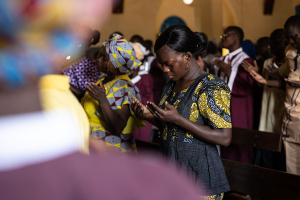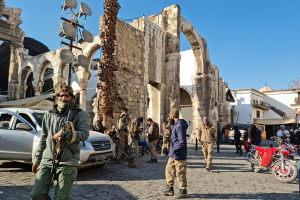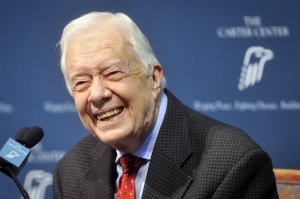Global Church Bodies Issue Strong Statement Against Slavery
Three worldwide church bodies have come out strongly against the transatlantic slave trade, asserting that churches and society at large need to offer reparation to descendants of those enslaved, tortured and murdered.
In a statement released after a five-day ecumenical conference this month in Runaway Bay, Jamaica, the World Council of Churches (WCC), the World Alliance of Reformed Churches (WARC) and the Council for World Mission (CWM) acknowledged how many churches were actively involved in the transatlantic slave trade in Africans and colonialism.
"[H]ence the church's mission has been seriously compromised and betrayed by its historic complicity with two of the most blatant forms of oppression that occurred within the 16th and 19th centuries," the statement charged.
"Further, the church's pastoral and prophetic roles in the contemporary period are obstructed by its voluntary amnesia about its corporate sin and silence regarding the past – as well as regarding the present – responsibility to bring justice to those still suffering from the legacy of the transatlantic trade in Africans," it continued.
"While there have been some acts of repentance and confessional statements made by some churches, for the most part those statements have not been effective enough in eradicating white supremacy, systemic racism and the ongoing legacy of the transatlantic trade in Africans."
From Dec. 10 to Dec. 14, sixty theologians, church leaders and activists from Africa, the Caribbean and the Americas had met for the ecumenical conference themed "Abolished, but not Destroyed: Remembering the Slave Trade in the 21st Century." The conference addressed the need for Christians to come out and start taking the initiative of repairing the damages caused and marked the 200th anniversary of the passing of the Abolition of the Slave Trade Act of the British House of Commons. Between the 16th and 19th centuries an estimated 15 million Africans were forcibly removed from their homes and shipped across the Atlantic Ocean to become slaves in the Caribbean and the Americas.
The international conference called on churches that were complicit in the slave trade to name the trade – and other modern forms of slavery – a sin. The conference stated that reparation is needed by both church and society but that reparation is much more than a financial issue.
"The process of reparations requires the restoration of relationships that affirm the dignity and humanity of all parties in order to repair what has been broken," church leaders expressed in their statement. "Reparation also challenges the perpetrator to confession and repentance and minister restoration and healing to those who have been exploited.
"The transatlantic trade in Africans destroyed the roots of nation building and enriched the oppressors to build its nations and states," the statement added. "Thus, we believe that mere financial aid is no replacement; rather, full nationhood and community restoration of peoples impacted should be the condition of reparations."
WCC representative Adele Halliday of Canada said that the challenge now is to move beyond statements and make the issues discussed in Jamaica tangible in the church. Another WCC representative, Lois McCullough of the United States, added: "Churches need to atone and act."
And CWM delegate Jennifer Ayana McCalman of Nevis in the Caribbean said, "What has been done in one generation has effects in the generations following. If we don't deal with these consequences from the slave trade then we, the church, are living in denial."
WARC general secretary Setri Nyomi, who also attended the event, expressed thanks for the collaboration with WCC and CWM.
"The statement sends a strong message challenging churches to look at their own past complicity in the evil of slavery and the slave trade and be at the forefront of exposing modern forms of slavery and oppression of people based on caste, race, gender or economic status," Nyomi said.
The recent conference was hosted by the United Church in Jamaica and the Cayman Islands and supported by the Caribbean Conference of Churches as well as the Jamaica Council of Churches.
WCC and WARC are two global church bodies that represent millions of Protestants.
According to the official websites of the WARC (75 million) and the WCC (560 million), both account for over 635 million Protestant Christians around the world.





























